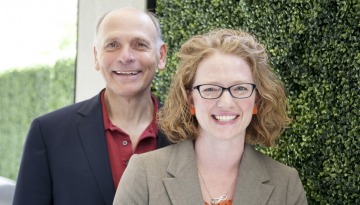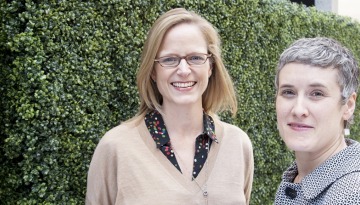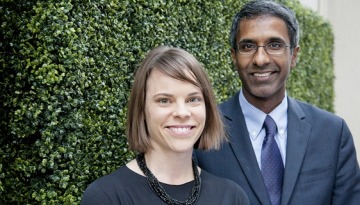Hot off the Press…Release Policy
Last week, I walked you through a new proposed policy on how we’ll handle SWOG Cancer Research Network related surveys, a new set of guidelines that will be considered by the Board of Governors at our spring meeting next month. This week, I want to focus on a revision to our existing press release policy, which will also go to the board for a vote.
The proposed revisions will broaden existing policy to include web content and social media – key ways we now promote our high-impact journal publications and conference abstracts. The proposed new language also underscores our commitment to collaboration when it comes to promoting our results. I don’t expect a lot of controversy here – it just makes sense. The more we partner with Hope, the NCI, and our academic and community partners, the bigger audience for our news.
In the proposal, we spell out our stance carefully and strongly: “We name partner organizations, and use our member’s home institution titles, in our press releases and promotional materials. We tag partners in our social media posts. We share credit – and expect the same from our partners.”
Making expectations about credit-sharing clear is another goal of the proposal. In the past, some press releases about SWOG trials didn’t even mention our organization! If we are going to promote our results – which come after years of effort by our investigators and staff – then SWOG should be credited in media stories and online. The new policy language makes it clear that investigators are expected to use their SWOG titles in interviews and coordinate press releases on SWOG results with the SWOG communications manager. This obligation is not new – it’s already spelled out in current policy. But the new language provides context and clarity.
Finally, the new language makes explicit what’s long been our stance: That SWOG takes the lead in promoting its own research. That means that if a trial receives primary funding from SWOG, SWOG will write the press release and distribute it to reporters. We do – often – write joint releases with our partners. But in nearly every case, only one press release is written on SWOG results. That’s to ensure accuracy and consistency of message. We also make sure we get proper approval, say from the National Cancer Institute.
A note here about promotion and credit. We pursue both not solely to toot our own horn or stroke our members’ egos, though I don’t actually mind doing either. We do it because our trials are, by and large, funded by taxpayers. They should know what we’ve done with their money. So, I see press releases and online promotion of our work as part of our public service mission. Promotion also amplifies impact. We conduct clinical trials to improve cancer care, potentially change standard of care, and simply to better the lives of patients. To achieve any of those goals, our results need to be disseminated. The world needs to know what we’ve learned from our research in order to decide whether our work warrants a change in practice.
Also, two years ago, we updated our press release policy to include specific criteria for trial results that rise to the level of a press release. Relevance, impact, novelty, and the caliber of the publication or conference now all matter. These new guidelines have been a big success, with committee chairs and our communications manager together making judicious calls on whether publications or presentations warrant a formal press release.
This old revision, and the proposed new revision, represent true progress for SWOG. Our media relations and social media efforts are more sophisticated, more rigorous, and more professional than ever before – and we’re reaping big rewards by getting more attention for our high-impact trials. We are also engaging a larger audience in our work.
As I noted last week, I will let you all know the outcome of these policy votes when we wrap our San Francisco meeting. See you there!



